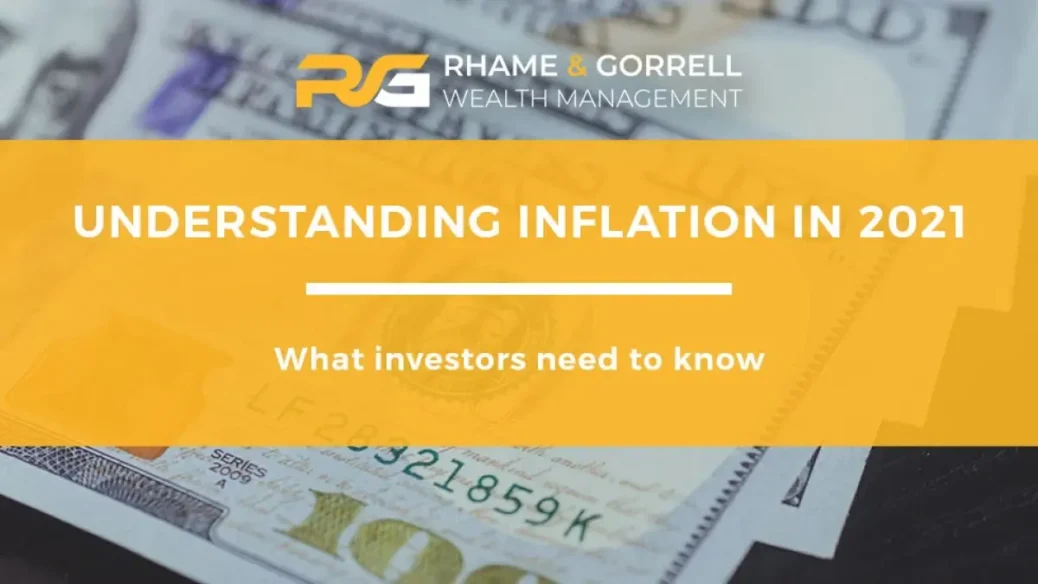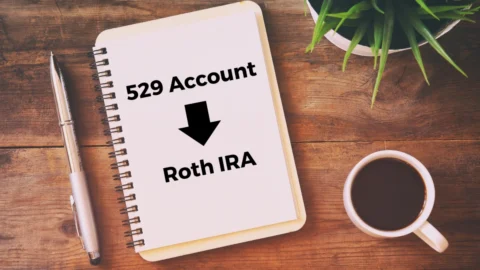Inflation in 2021: What Investors Need to Know
How Inflation Will Affect Investments
Following a year of economic instability, it appears that many of us are turning our attention to something that’s been around for decades, but has recently piqued national interest – inflation. In fact, a recent study found that people are Googling the word “inflation” at a rapid rate, with a peak not seen since 2008.
Since the start of the COVID-19 pandemic, six major stimulus bills totaling around $5.3 trillion have passed. With these efforts to alleviate pandemic-fueled financial strife, are inflation levels being impacted?
Fed Chair Jerome Powell has said that inflation is likely to pick up as the economy recovers from the pandemic, but he believes it will be temporary. Powell has also stated that the central bank plans to keep short-term rates anchored near zero through 2023.
As you consider any potential changes to inflation we may be seeing this year, here’s a reminder about what inflation is and how it can affect you and your investments.
What is Inflation?
Inflation is defined as an upward movement in the average level of prices. Each month, the Bureau of Labor Statistics releases a report called the Consumer Price Index (CPI) to track these fluctuations.
Understanding the Consumer Price Index
The CPI was developed based on information provided by families and individuals on purchases made in the following categories:
- Food and beverages
- Housing
- Apparel
- Transportation
- Medical care
- Recreation
- Education and communication
- Other groups and services
While it’s the commonly used indicator of inflation, the CPI has come under scrutiny. For example, the CPI rose 1.4 percent between January 2020 and January 2021 – a relatively small increase. A closer look at the report, however, shows the movement in prices on various goods tells a different story. Used car and truck prices, for example, rose 10 percent during those 12 months.
Investments & Inflation
Inflation can affect investments in several ways. Most notably, it can reduce the rate of return, risk purchasing power and influence the Federal Reserve.
Rate of Return
Inflation reduces the real rate of return on investments. Say an investment earned six percent over a 12-month period. During that time, let’s say inflation averaged about 1.5 percent. That would mean that your investment’s real rate of return would have been 4.5 percent – not six percent.
Purchasing Power
Inflation puts your purchasing power at risk. When prices rise, a fixed amount of money has the power to purchase fewer goods and services.
The Federal Reserve
In addition, inflation can influence the actions of the Federal Reserve. If they want to control inflation, the Federal Reserve has several ways in which it can reduce the amount of money in circulation. Hypothetically speaking, a smaller supply of money means less spending – which could equal lower prices and lower inflation.
With so many changes over the past year or so, it’s no wonder investors and consumers are concerned about the rate of inflation today.
Need Some Help?
If you’d like some help from one of our CPAs or CERTIFIED FINANCIAL PLANNER (CFP®) advisors regarding this strategy and how it applies to you, the Rhame & Gorrell Wealth Management team is here to help.
Our experienced Wealth Managers facilitate our entire suite of services including financial planning, investment management, tax optimization, estate planning, and more to our valued clients.
Feel free to contact us at (832) 789-1100, [email protected], or click the button below to schedule your complimentary consultation today.
IMPORTANT DISCLOSURES:
Corporate benefits may change at any point in time. Be sure to consult with human resources and review Summary Plan Description(s) before implementing any strategy discussed herein.Rhame & Gorrell Wealth Management, LLC (“RGWM”) is an SEC registered investment adviser with its principal place of business in the State of Texas. Registration as an investment adviser is not an endorsement by securities regulators and does not imply that RGWM has attained a certain level of skill, training, or ability. This material has been prepared for informational purposes only, and is not intended to provide, and should not be relied on for, tax, legal or accounting advice. You should consult your own CPA or tax professional before engaging in any transaction. The effectiveness of any of the strategies described will depend on your individual situation and should not be construed as personalized investment advice. Past performance may not be indicative of future results and does not guarantee future positive returns.
For additional information about RGWM, including fees and services, send for our Firm Disclosure Brochures as set forth on Form ADV Part 2A and Part 3 by contacting the Firm directly. You can also access our Firm Brochures at www.adviserinfo.sec.gov. Please read the disclosure brochures carefully before you invest or send money.












